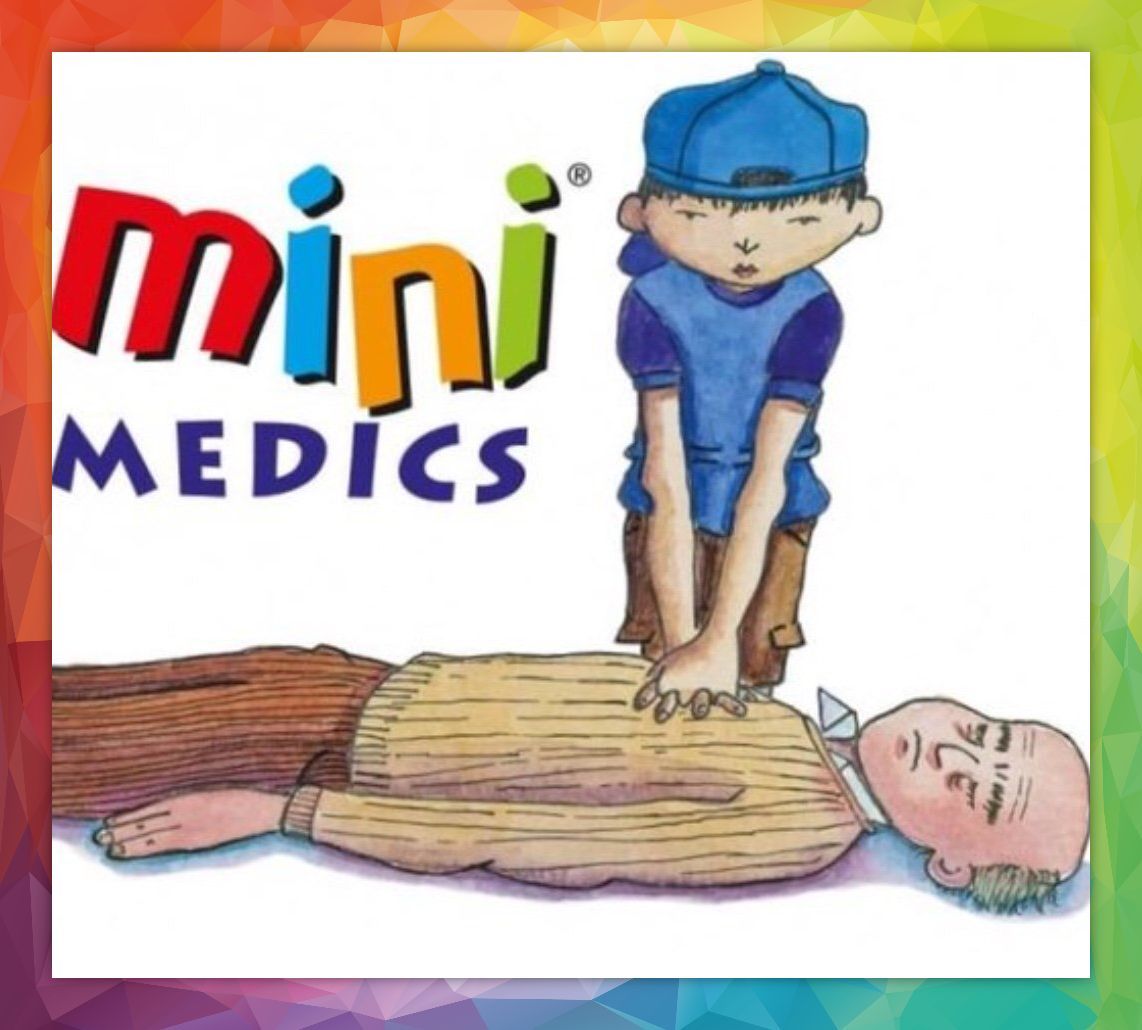Mini Medics First Aid -
Mini Medics First Aid is a basic first aid course designed for children between the ages of 5 and 12.
Ideal for school groups, after school activities, sports clubs, Guides, scouts or any other community groups
A fun and interactive session of 1,2,3 or 6 hours - depending on age and syllabus required.
A range of topics are covered including:
Contacting the emergency services
CPR
How to use an AED
Recovery position
Choking
...and many more.

Other subjects:
Wounds, bleeding and Shock
Anaphylaxis
Asthma
All children receive the Mini-Medics A4 illustrated colour book with included Certificate. A Pencil Set or pen.
The Importance of First Aid Education
for Children in Primary School
Incorporating First Aid education into the primary school setting offers numerous benefits for children, their families, and the wider community. Here are some compelling reasons why children should learn first aid at a young age:
1. Early Development of Lifesaving Skills
Introducing First Aid to children at an early age helps them develop essential lifesaving skills. Simple techniques such as applying bandages, performing basic CPR, and knowing how to call emergency services can be taught in a child-friendly manner. These skills can be crucial in emergency situations, potentially saving lives even before professional help arrives.
2. Building Confidence and Responsibility
Learning First Aid instills a sense of confidence and responsibility in children. They gain the knowledge that they can make a difference in an emergency, which fosters a sense of empowerment. This confidence can carry over into other areas of their lives, helping them to become more self-assured and responsible individuals.
3. Promoting Safety Awareness
First aid education encourages children to be more aware of safety issues and the potential risks around them. By understanding the importance of safety measures, children are more likely to engage in safe behaviors and make better decisions to prevent accidents and injuries, both for themselves and others.
4. Encouraging Empathy and Helping Behaviour
Teaching first aid promotes empathy and a helping mindset in children. They learn the importance of caring for others in need and the value of taking action to assist those who are injured or ill. This nurturing attitude can foster a more compassionate and supportive community.
5. Creating a Prepared Community
When children are trained in First Aid, it increases the number of people in the community who are capable of responding to emergencies. This widespread knowledge can contribute to a safer environment where individuals are more likely to receive prompt and effective help in case of an emergency.
6. Positive Long-Term Impact
First Aid education has a long-term impact on children’s lives. The skills and knowledge they acquire can stay with them into adulthood, making them well-prepared to handle emergencies throughout their lives. Additionally, children who learn First Aid often pass on this knowledge to friends and family, further spreading the benefits.
7. Enhancing School Safety
Schools that include first aid training as part of their curriculum/Health Week can enhance overall school safety. Students who are knowledgeable about First Aid can assist in minor injuries and understand how to react appropriately in more serious situations. This can help create a safer and more supportive school environment.
8. Aligned with Educational Goals
First Aid training complements other educational goals by promoting problem-solving, critical thinking, and decision-making skills. These are key competencies that support a child’s overall development and academic success. Teaching First Aid in the school setting can make learning more practical and relevant.
Conclusion
Incorporating First Aid education into primary schools in Belfast and beyond is a proactive step toward creating a safer, more responsive community. By equipping children with essential lifesaving skills, we empower them to act confidently in emergencies, promote safety and empathy, and lay the groundwork for a well-prepared society. Investing in First Aid training for children is an investment in the health, safety, and well-being of our future generations.


